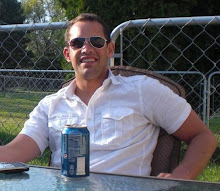Vince, a middle-aged Italian man who wore nothing but jogging outfits and owned a dry-cleaning place downtown, sat in Central Park jabbering to a crack addict about the time he met Warren Buffet. It was the middle of May, and Vince and the crack addict, Simon, sat across from each other at a stone table playing Chess.
“So, Buffet lays his suit jacket on the counter, and says, ‘How long till this is ready?’ There was a big mustard stain across the left lapel, but I knew that I could get it out. I could have gotten it done that afternoon, but I told him it ‘Not till tomorrow, sir’. Not till tomorrow, sir! I lied to Warren Buffet! Anyway, real nice guy that Warren Buffet. Real nice guy.” Vince looked pretty pleased with himself.
Simon the crack addict pointed to the chess clock, which sat next to the board and let the players know how much time was left. They were playing a 25 dollar, 10-minute speed-game of chess, and Simon the crack addict needed the money for his afternoon fix. He would win, of course, because Vince was a lousy player, especially when the game was timed. He spent too much time yakking. During a speed game, players have seconds to make their moves, creating 10 minutes of pure instinct and routine, leaving little time for carefule, methodical playing. Some of the players at other tables were standing up, both from the pace of the speed-games and in the attempt to somehow intimidate the other players. Vince’s slow, half-hearted playing was expensive in this group of sharks. He would’ve been better suited in the one of the chess clubs downtown.
The two guys at the table beside Vince and Simon the crack addict started raising their voices, but most of the other players didn’t turn their heads. It was the O’Rourke brothers, two loud-mouthed Irish who spent most afternoons arguing about chess and getting drunk. They were a regular fixture in the park.
Calvin, the older, but short brother, had his finger in his brother’s face. “No, you drunk, Kasparov is dumbass, and I don’t give a damn what he thinks about gambits!”
Thomas, the younger, shoved Calvin’s finger away, the two started shoving each other, and both ended up falling onto Vince and Simon the crack addict’s board, knocking the pieces, the Italian, and the crack addict onto the stone pavement.

